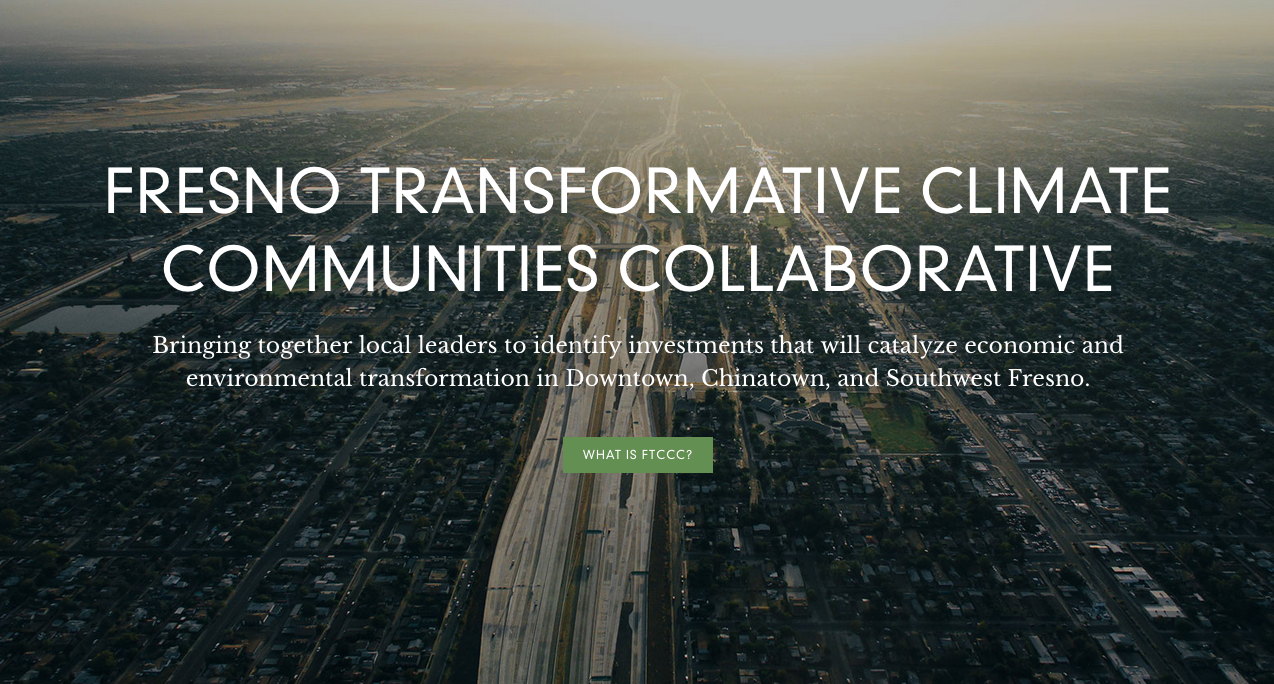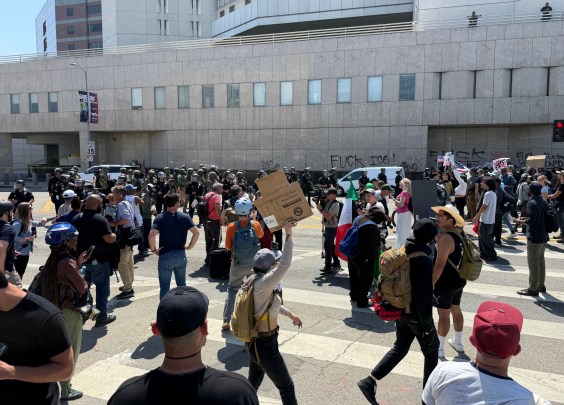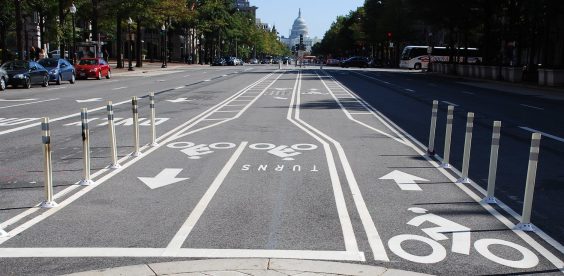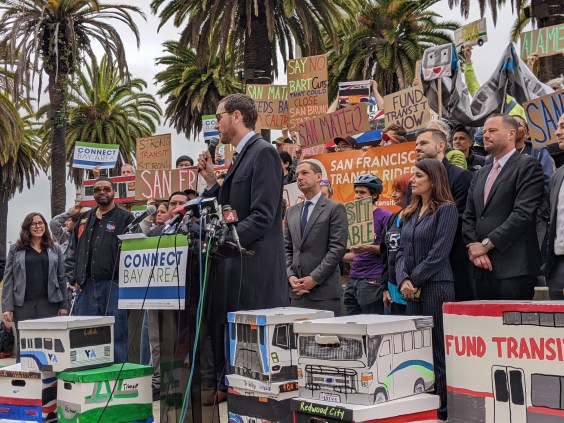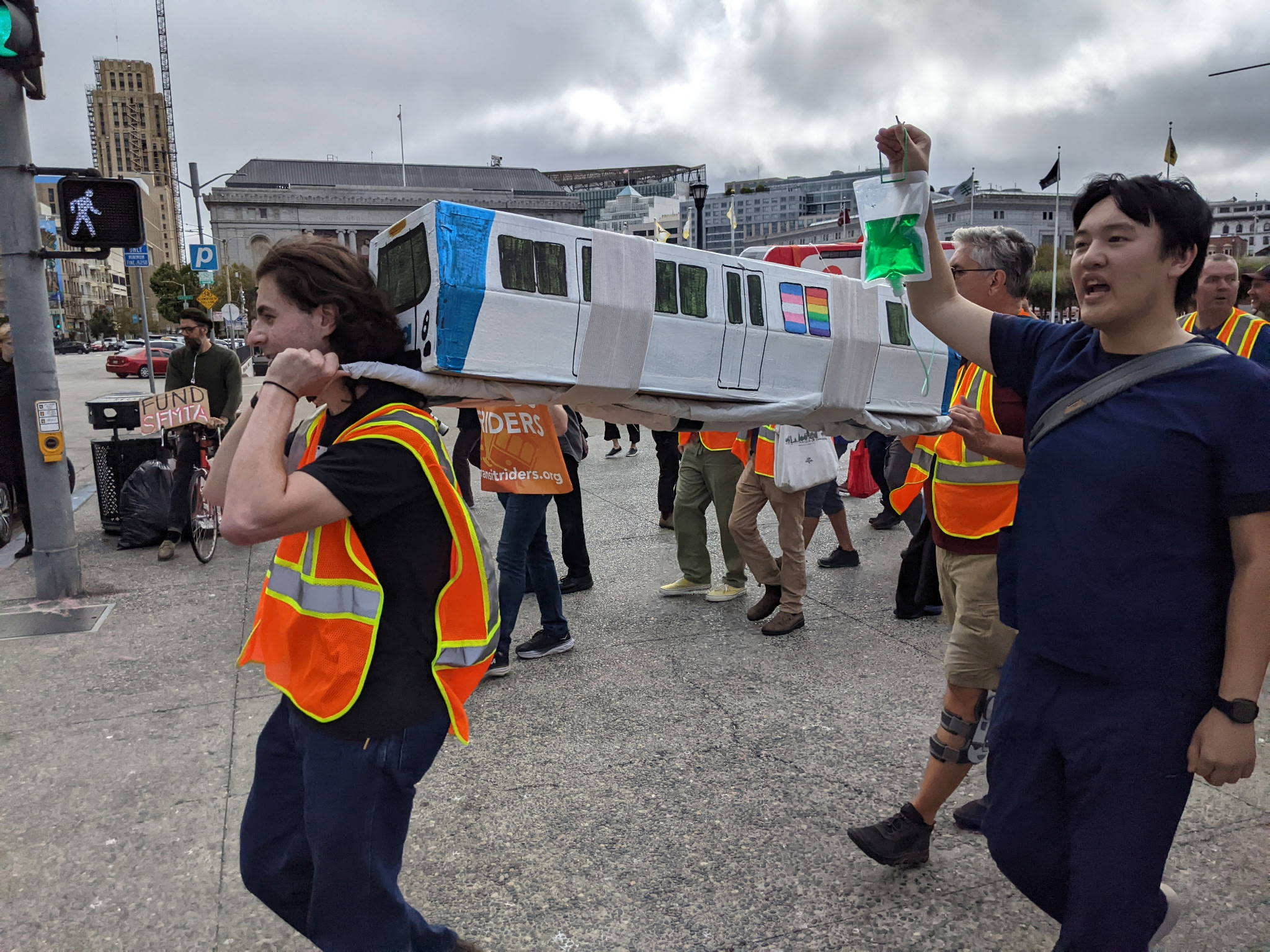Note: GJEL Accident Attorneys regularly sponsors coverage on Streetsblog San Francisco and Streetsblog California. Unless noted in the story, GJEL Accident Attorneys is not consulted for the content or editorial direction of the sponsored content.
The Transformative Climate Communities (TCC) grant program, funded by California's cap-and-trade system, has the purpose of encouraging “neighborhood-level, transformative climate community plans” that can reduce greenhouse gas emissions while providing local economic, environmental, and health benefits to disadvantaged communities. To that end, the Strategic Growth Council will award approximately $140 million in grants in January.
The SGC received seven general concept proposals. Six of those proposals were invited to submit full applications. They include one in Fresno, three in Los Angeles, one in Sacramento, and one in Ontario.
From this list of potential awardees, half of the funds—$70 million—will go to Fresno, a quarter to one of the projects in Los Angeles, and the last quarter to a third area. The SGC chose to allocate the first funding from the TCC this way because the total amount of money available is small, and the program seeks to make as big an impact as possible. The council decided that giving a single community a larger amount of money to spend could “catalyze” a bigger transformation, as opposed to spreading the money out among many smaller projects.
Real transformation, says the SGC, will involve “changing the way Californians think about transportation, housing, energy, water, natural resources and waste, while simultaneously addressing growing equity issues, resource conservation, economic sustainability and climate resiliency.”
Fresno and L.A. were chosen for the proof of concept of the TCC because both suffer from heavy pollution burdens and high poverty rates. Fresno in particular has some of the worst pollution in the country, with a distressed urban core and historic neighborhoods with “some of the highest concentrations of poverty in the nation.” At the same time, the city is working to change that, with “a combination of local leadership and sustained commitment to helping achieve the state’s climate goals” including a new zoning ordinance that directs half of new growth to infill, and a General Plan that includes large-scale transportation investments, spurred in part by the construction of high speed rail right through town.
According to the SGC, “Fresno’s concentrated per capita poverty and depressed real estate market means that a higher level of state investment provides a greater chance of success.” More details on why Fresno was chosen can be found here.
Fresno, knowing it was going to benefit from a $70 million investment, convened a public planning process to develop ideas for how best to spend it, and in the end voted on a final package of projects that will be submitted as one application.
The Fresno proposal includes housing, with some affordable housing, some workforce housing, and some mixed-use, in the downtown and south Fresno areas that are withing walking distance to BRT lines and the future high speed rail station. Also included are weatherization and solar energy installations for residents in disadvantaged areas; electric vehicle charging stations and rebates for residents to buy electric vehicles; job training for local residents; a Green Trails initiative to connect school, parks, and other destinations with easy access by walking and biking; pedestrian improvements in Chinatown; Complete Streets projects around the high speed rail station; and urban greening projects. More details on individual projects can be found here.
Three proposals are vying for the $35 million that will go to the L.A. area. They include:
- A partnership between L.A. Metro and several community organizations on the Rail-to-River Bike/Ped Path—the project has funding but the partners are proposing additional community benefits that fit the TCC guidelines
- A partnership between the Trust for Public Land and Pacoima Beautiful to bring local out-of-compliance housing units in the densifying area up to code and weatherize them, among other efforts
- A proposal in Watts to fix up existing affordable housing and add transformative elements to the broader area, including active transportation, electric charging stations, and urban greening
The last $35 million will be awarded to a third area, and two projects are competing for that money. One is the Sacramento River District Project, an ongoing effort to add housing and shops to an area near downtown; the TCC grants would help add 173 affordable housing units along with some mixed-income areas, as well as transit connectivity elements. The other competitor is a project in Ontario that builds on previous community building efforts. Ontario Connects would create a mobility hub, add affordable housing, buy electric buses, build active transportation infrastructure, and add urban greening.
“Those are all comment elements of the proposals,” said Daniela Simunovic, TCC program lead at the Strategic Growth Council. “They all include an element to promote energy efficiency and urban greening, as well as encourage active transportation, in keeping with the goals of the TCC.”
“The SGC wanted to provide guidelines for transformative projects, but at the same time be flexible enough that each community's plan could reflect their individual needs. You can't just apply an even standard to each of these communities, because they are so different,” she said.
In addition to the project grants, the TCC will also award about $1.5 million in planning grants for disadvantaged communities so they can work towards future TCC implementation grants. The deadline to apply is the same as the deadline for these six full applications: November 30.
The project grants will be decided at the January meeting of the Strategic Growth Council.
